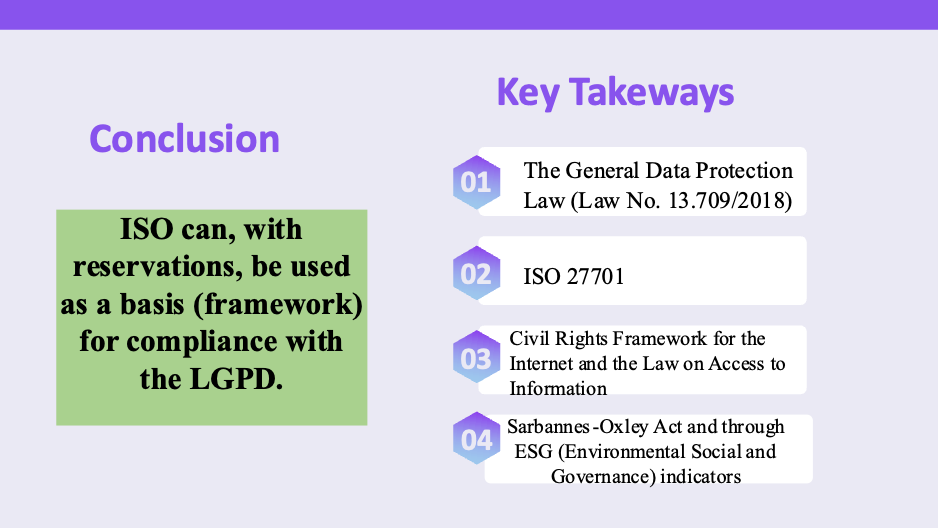General Data Protection Law: an analysis of ISO 27701 as a control tool for GDPR
DOI:
https://doi.org/10.36524/ric.v10i1.2445Keywords:
Brazilian General Data Protection Law; Privacy; ISO 27701; Compliance; GovernanceAbstract
The General Data Protection Law (Law No. 13.709/2018) seeks to guarantee the right to privacy of individuals and generates obligations to organizations in the treatment of personal data collected. However, the parameters and controls that must be adopted by companies were not regulated by the National Data Protection Authority (ANPD). In thi way, the present proposes the analysis of the standards contained in the ISO 27701 standard as a model and management (framework) of adequacy to the requirements for data processing as stipulated in the LGPD. Methodologically, the work was configured as a systematic bibliographic review of an exploratory nature. For this, the article analyzed the internet age and current legislation, such as the Civil Rights Framework for the Internet and the Law on Access to Information. Through the comparative analysis between the requirements of the LGPD and the recommendations of ISO 27701, it was identified that the ISO can, with reservations, be used as a basis (framework) for compliance with the LGPD, observing the need to complement any requirements in the light of the principles contained in the law.

Downloads
Published
Issue
Section
License
Copyright (c) 2024 Revista Ifes Ciência

This work is licensed under a Creative Commons Attribution-NonCommercial-NoDerivatives 4.0 International License.
Autores que publicam nesta revista concordam com os seguintes termos:
- Autores mantém os direitos autorais e concedem à revista o direito de primeira publicação, com o trabalho simultaneamente licenciado sob a Licença Creative Commons Attribution que permite o compartilhamento do trabalho com reconhecimento da autoria e publicação inicial nesta revista.
b. Autores têm permissão e são estimulados a publicar e distribuir seu trabalho online (ex.: em repositórios institucionais ou na sua página pessoal) a qualquer ponto antes ou durante o processo editorial, já que isso pode gerar alterações produtivas, bem como aumentar o impacto e a citação do trabalho publicado (Veja O Efeito do Acesso Livre).


